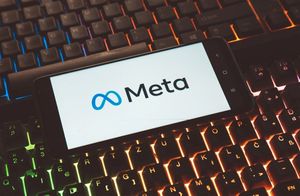
The year 2023 was a breakout year for glucagon-like peptide (GLP-1) weight-loss drugs in the medical sector, led by the popularity of Ozempic. Celebrity usage and social media exposure have caused Novo Nordisk A/S (NYSE: NVO) Semaglutide drug Ozempic to go mainstream and viral as countless consumers try the medication that was originally approved for type 2 diabetes patients.
To capitalize on the off-label use of Ozempic, Novo Nordisk received FDA approval for its obesity treatment, Wegovy, which is just a heavier dosage of Semaglutide. With over 70% of Americans being overweight or obese, the market for weight-loss prescription drugs is massive, and it has spurred strength in sales of protein bars and shakes.
Telehealth platforms enter the weight-loss prescription arena.
Traditional weight management companies like Weight Watchers WW International Inc. (NYSE: WW) have rolled out services to prescribe weight-loss medications in conjunction with its dietary food products for a more effective approach to weight management. Telehealth platforms Teladoc Health Inc. (NASDAQ: TDOC) and Hims & Hers Health Inc. (NASDAQ: HIMS) have also rolled out weight management services that can prescribe weight-loss medications.
Lilly enters the prescription weight-loss drug arena.
Elli Lilly & Co. (NYSE: LLY) has seen immense growth with its weight-loss drug tarazepide called Mounjaro, which was also originally approved for type 2 diabetes. Like Ozempic, Mounjaro mimics the GLP-1 hormone but also targets a second hormone called GIP. The addition of the gastric inhibitory polypeptide (GIP) agonist has made Mounjaro more effective in clinical studies.
Studies show that Mounjaro is more effective than Ozempic for weight loss.
In a recent study, Mounjaro was shown to be more effective as users taking it had an average weight loss of 6% versus 4% for Ozempic. At six months, the average weight loss was 10% versus 6%. At twelve months, the average weight loss was 15% for Mounjaro versus 8% for Ozempic. Novo Nordisk claims the study is not fair. The study also found that users without diabetes lost more weight since only 52% of the 18,000 people had type 2 diabetes.
Nausea, vomiting and gallstones
Nearly half the people got off the medication halfway through the study for various reasons, with the most common complaint being nausea and vomiting. Gallstones were reported for 1 in 6 patients. The vomiting and nausea were the main reason Pfizer Inc. (NYSE: PFE) recently stopped trials on its twice-daily obesity pill, danuglipron. Pfizer still plans to move forward with its once-daily version, with clinical studies due to be completed in 2024.
FDA approves drugs for Obesity rather than type 2 diabetes
The FDA has approved higher doses of both Semaglutide and Tirzepatide under the brand names Wegovy and Zepbound, respectively. These drugs are marketed specifically for obesity treatments, which also makes health coverage easier than using Ozempic or Mounjaro off-label without having type 2 diabetes.
Growing lawsuits
As the GLP-1 drugs get more popular, there is a growing number of lawsuits emerging from patients complaining about the serious side effects leading to stomach and intestine health problems. Ozempic lawsuits have claimed the drug causes severe gastroparesis. This condition causes slow or paralyzed movement of food through the stomach, which can lead to nausea, bloating and vomiting in addition to weight loss. Plaintiffs claim Novo Nordisk and Lilly had downplayed the severity of side effects in their marketing. They claim both companies were aware of the risk of serious gastrointestinal side effects before bringing their GLP-1 drugs to market. While the lawsuits are still ongoing, it may cause the FDA to reexamine the drugs for safety.
Weight rebounds after getting off GLP-1
The other downside of the drugs is the weight gain that follows when patients stop taking GLP-1 drugs. In a STEP 1 trial, 1,961 adults received Ozempic for 68 weeks or a placebo. After 68 weeks, 327 participants stopped treatment and counseling for up to 120 weeks. The average weight loss of the 327 patients was 17.3% of body weight compared to 2% in the placebo group. After stopping Ozempic treatment, diet and exercise for 52 weeks, weight loss was reversed. Ozempic users regained 11.6% or two-thirds of their original weight. Novo Nordisk says Wegovy treatment lowers the risk of heart attack, stroke and cardiovascular death by 20%.
It's a treatment, not a cure, for Obesity
This is why Ozempic is not considered a cure for Obesity. The drug mimics the GLP-1 hormone to control blood sugar levels and suppress appetite, but those effects are removed once the drug is no longer in the system. Theoretically, users would have to remain on the GLP-1 treatment indefinitely to keep the weight off. Incidentally, there are no indications for a recommended treatment period nor adequate research on the safety effects of long-term usage. GLP-1 use has been approved for children as young as 12 years of age.





